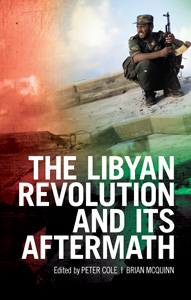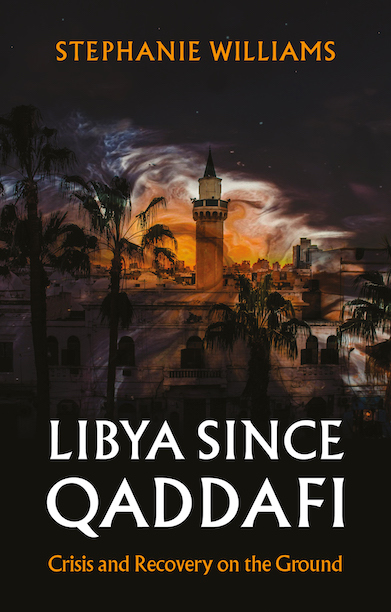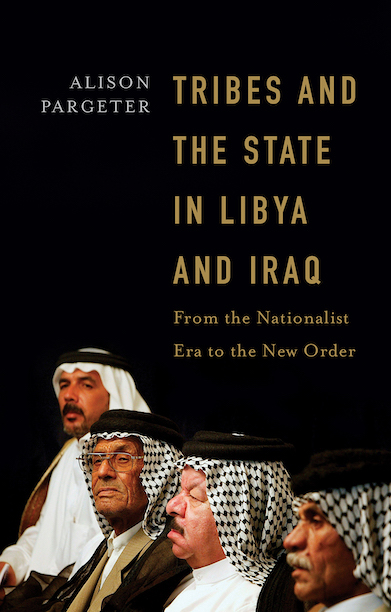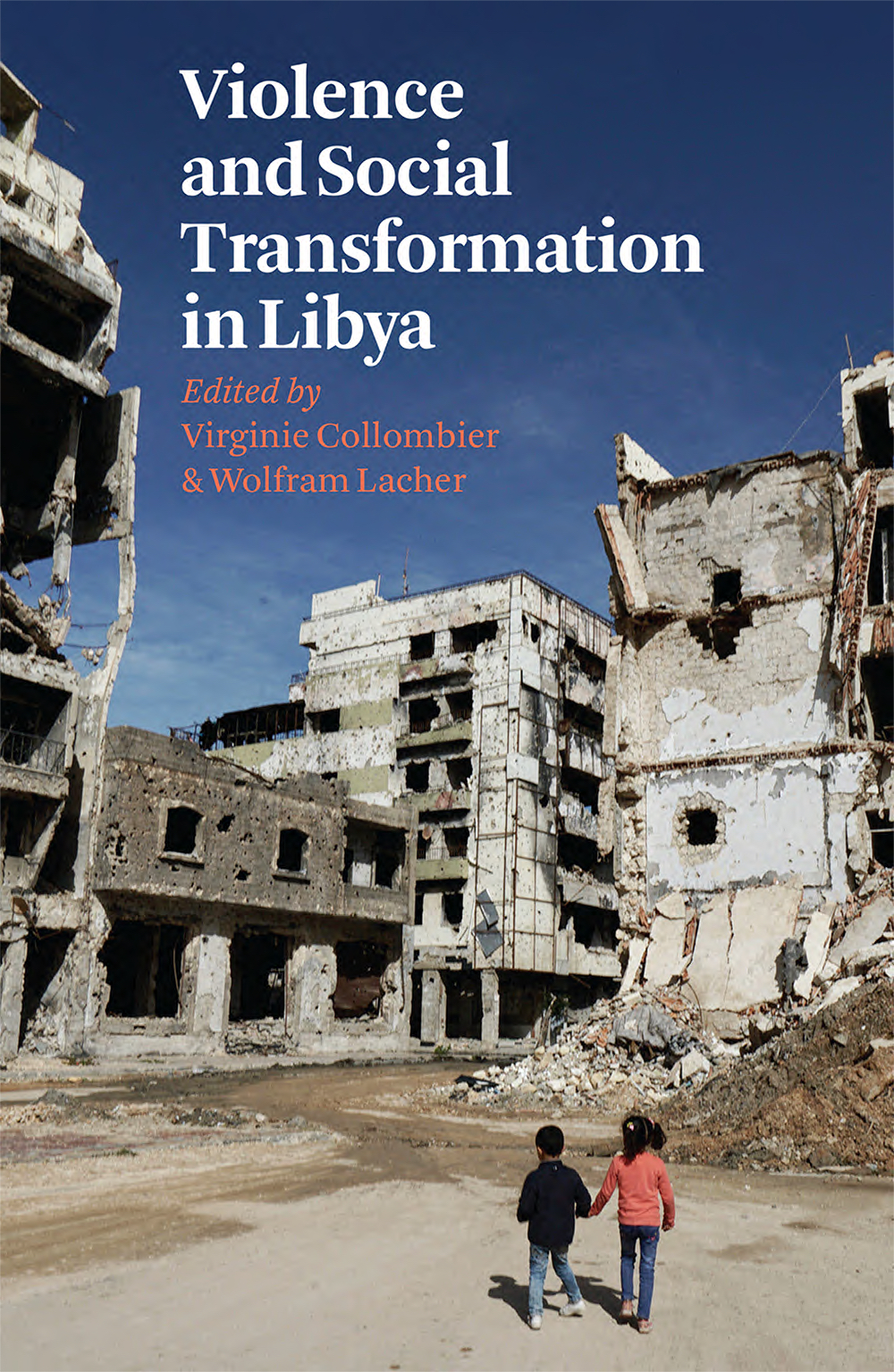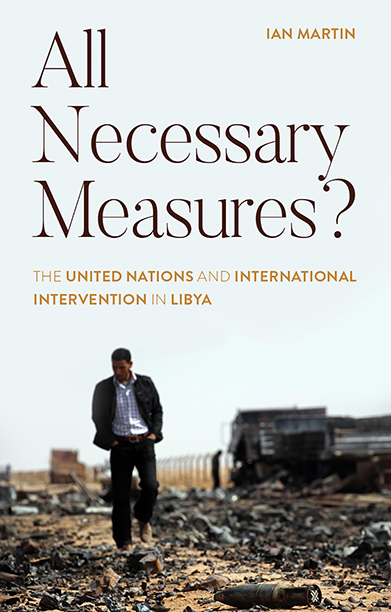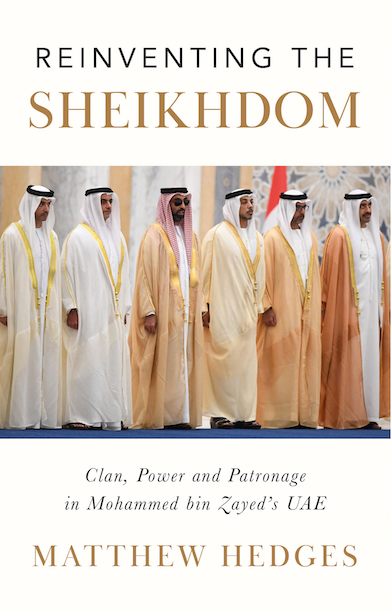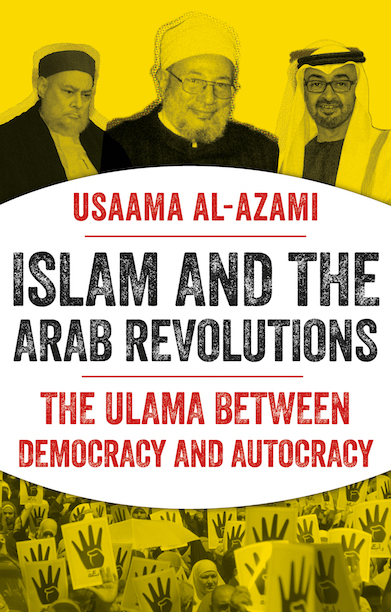The Libyan Revolution and its Aftermath
‘… a timely acknowledgment that Libya’s chemistry is older than the laboratory Qaddafi fashioned. The book traces not only the colonel’s demise, as many others have done, but the appearance of a lesser-known new cast. Written almost entirely by foreign experts, some of whom know the different factions intimately, it is the most detailed account I have read of the old forces shaping new Libya.’ — Nicholas Pelham, New York Review of Books
Description
This book offers a novel, incisive and wide-ranging account of Libya’s ‘17 February Revolution’ by tracing how critical towns, communities and political groups helped to shape its course. Each community, whether geographical (e.g. Misrata, Zintan), tribal/communal (e.g. Beni Walid) or political (e.g. the Muslim Brotherhood) took its own path into the uprisings and subsequent conflict of 2011, according to their own histories and relationship to Muammar Gaddafi’s regime.
The story of each group is told by the authors, based on reportage and expert analysis, from the outbreak of protests in Benghazi in February 2011 through to the transitional period following the end of fighting in October 2011. They describe the emergence of Libya’s new politics through the unique stories of those who made it happen, or those who fought against it.
The Libyan Revolution and its Aftermath brings together leading journalists, academics, and specialists, each with extensive field experience amidst the constituencies they depict, drawing on interviews with fighters, politicians and civil society leaders who have contributed their own account of events to this volume.
Table of contents
Introduction
Note on Transliteration
Frequently Used Terminology
List of Acronyms
Part 1: The Revolution and its Governance
Chapter 1: Libya’s Uncertain Revolution
Dirk Vandewalle
Chapter 2: The Corridor of Uncertainty: the National Transitional Council’s Battle for Legitimacy and Recognition
Peter Bartu
Chapter 3: The Fall of Tripoli: Part 1
Peter Cole with Umar Khan
Chapter 4: The Fall of Tripoli: Part 2
Peter Cole with Umar Khan
Chapter 5: NATO’s Intervention
Frederic Wehrey
Chapter 6: The United Nations’ Role in the Transition
Ian Martin
Chapter 7: Confronting Qadhafi’s Legacy: Transitional Justice in Libya
Marieke Wierda
Part 2: Sub-National Identities and Narratives
Chapter 8: Finding Their Place – Libya’s Islamists during and after the 2011 uprising
Mary Fitzgerald
Chapter 9: Barqa Reborn? Eastern Regionalism and Libya’s Political Transition
Sean Kane
Chapter 10: History’s Warriors: The Emergence of Revolutionary Battalions in Misrata
Brian McQuinn
Chapter 11: Factionalism Resurgent: The War in the Jabal Nafusa
Wolfram Lacher and Ahmed Labnouj
Chapter 12: Bani Walid: Loyalism in a Time of Revolution
Peter Cole
Chapter 13: Libya’s Tebu: Living in the Margins
Rebecca Murray
Chapter 14: Tuareg Militancy and the Sahelian Shock Waves of the Libya Revolution
Yvan Guichaoua
Index
Reviews
‘… a timely acknowledgment that Libya’s chemistry is older than the laboratory Qaddafi fashioned. The book traces not only the colonel’s demise, as many others have done, but the appearance of a lesser-known new cast. Written almost entirely by foreign experts, some of whom know the different factions intimately, it is the most detailed account I have read of the old forces shaping new Libya.’ — Nicholas Pelham, New York Review of Books
‘The most complete picture we have yet had of the Libyan revolution and its aftermath … a compelling and troubling read.’ — Justin Marozzi, The National
‘By explaining the mosaic of Libya’s various sub-national loyalties and identities and their origins, The Libyan Revolution and its Aftermath provides a useful antidote to day-to-day media coverage, which sometimes reduces Libyan political disputes to a binary struggle between Islamists and secularists, or East and West, or to tribal differences. It underlines the difficulty of forging a new political and economic framework that recognizes these differences but channels them into a pluralistic and tolerant vision.’ — The Times Literary Supplement
‘Making sense of Libya’s post-war descent is difficult — but possible, as The Libyan Revolution and its Aftermath, a timely collection of essays on the country, shows.’ — The Petroleum Economist
‘Libya’s revolution was a complex story of multiple uprisings from geographically, ideologically and tribally distinct areas…Cole and McQuinn’s contributors offer compelling narratives that portray the main actors and the rivalries within and between each of these camps.’ — Survival
‘This is an important book that deserves a wide readership. With more than a dozen books published on the Libyan revolution, this is the first in which the contributors share extensive professional experience, a thorough knowledge of the literature, and recent fieldwork in Libya. The result is a detailed, nuanced account of the revolution and its aftermath.’ — Ronald Bruce St John, author Libya: Continuity and Change and Libya: From Colony to Revolution
‘Here in shocking detail is the story of Libya’s violent “uncertain revolution” of 2011-12. Expert eye-witnesses give blow-by-blow accounts of why, where, when and how complex popular revolts replaced the Gaddafi fiefdom with a chaotic national “liberation”. A serious, convincing and much needed clarification of the Libyan crisis.’ — John Wright, former chief political commentator and analyst of the BBC Arabic Service, and author of A History of Libya
‘This unique and valuable book describes the Libyan Revolution as it has never been described before. It is full of rewarding surprises and deep insights of the sort that seldom make it into daily reporting. Rarely has any revolution been captured in so many dimensions by such a capable collection of authors.’ — Jon B. Alterman, Senior Vice President, Brzezinski Chair in Global Security and Geostrategy and Director, Middle East Program Center for Strategic and International Studies
‘This volume represents the first in-depth account of the dramatic fall and aftermath of the Gaddafi regime in Libya. Peter Cole and Brian McQuinn have successfully brought together nearly all of the keenest and most expert observers of this drama — journalists, academic and policy-makers — to provide detailed and considered analysis of what has occurred in Libya since 2011. This book gives informed and nuanced accounts of the different aspects and actors of Libya’s revolution and is destined to become an essential handbook for all those seeking to understand the seismic changes that have occurred and continue to unfold in the country.’ — Michael Willis, King Mohamed VI Fellow in Moroccan and Mediterranean Studies at St Antony’s College, University of Oxford, and author of Politics and Power in the Maghreb: Algeria, Tunisia and Morocco from Independence to the Arab Spring
‘Learning from the Libyan revolution, or from any other significant event, requires exactly what Cole and McQuinn’s collection of essays offers, and what is generally missing from the ever-evolving culture of online blather about the Middle East: granularity. … [T]he contributors write clearly and have mainly taken the best from academia—the rigor—while leaving the cant. They have cast a very wide net, incorporating hundreds of political and military figures … The result is an indispensible book.’ — Tablet
‘This collection of intelligently sculpted essays, written by academics, journalists and political scientists, describes Libya’s descent into chaos after the 2011 uprising that toppled Colonel Muammar Qaddafi. Collectively, the authors present possibly the most detailed and comprehensive account of the events that unfolded in Libya before February 2011, when the armed rebellion broke out. They go about their brief admirably and courageously, drawing on their experiences and knowledge of the country as they attempt to make sense of what seems to be a failed state heading inexorably into anarchy.’ — Ashur Shamis, Good Governance Africa
‘A remarkable collection—uniformly well informed, intelligent and thoughtful.’ — Lisa Anderson, James T. Shotwell Professor Emerita of International Relations, School of International and Public Affairs, Columbia University
Editor(s)
Brian McQuinn is Assistant Professor of International Studies at the University of Oxford. He was formerly at the Carter Center and a UNDP conflict prevention advisor.
Peter Cole was a senior analyst on Libya with the International Crisis Group during the revolution, and advised the UN, EU, corporations, NGOs and media.
